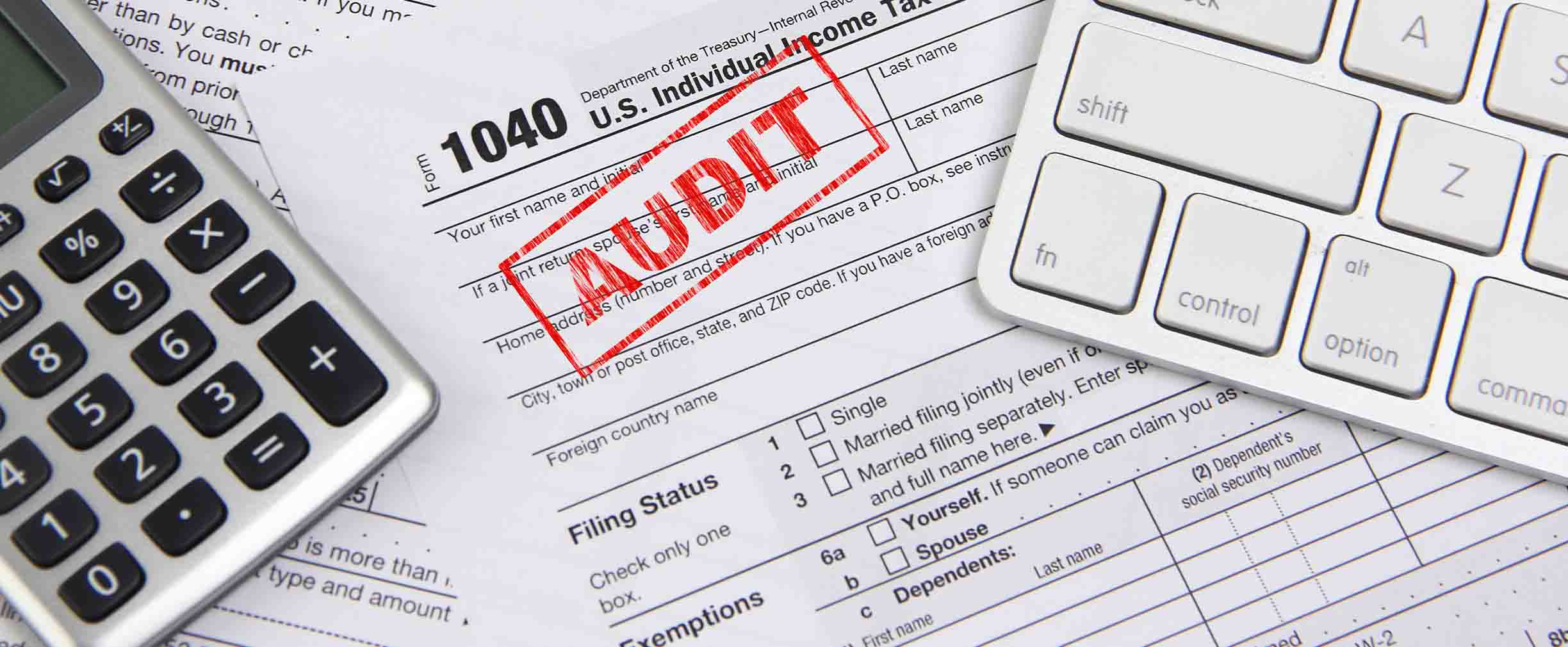How to Avoid a Tax Audit From the IRS
There are no hard and fast rules for what triggers a tax audit, but avoiding the kinds of mistakes and moves that catch the attention of the IRS can help keep the tax collectors at bay.
Even the best humor may not be an adequate antidote to the stress and anxiety you’re likely to feel if you are subject to an audit by the IRS. According to one analysis, only 3.8 of every 1,000 tax returns were audited in 2022.
Even though the chances you will be put under the IRS microscope are slim, there are red flags that make it more likely you’ll be scrutinized. Follow these tips to reduce your odds of hearing from the IRS.
Know What Triggers an Automatic Second Look
From the hundreds of millions of income tax returns the IRS receives each year, the agency selects a certain number to review, seemingly at random. While there’s not much you can do to avoid ending up on the receiving end of a full-blown audit, you can take steps to avoid getting singled out for an automatic review.
The IRS computers that process those millions of returns are programmed to spot discrepancies. A common one is when there is a difference between the wage income on your return (the amount you find on a W2) and the amount your employer reported to the IRS. This could happen, for instance, if you pick up the year-to-date income from your last paystub of the year instead of the total income from your W2. When that happens, the IRS will automatically send out a notice.
Although a notice isn’t technically an audit, it does require you to reconcile the figures—and possibly pay more taxes if the mistake wasn’t in your favor. In recent years, there have been more discrepancies between the income reported on tax returns and what is submitted to the IRS because taxpayers overlooked stimulus checks and incorrectly reported certain tax credits.
Don’t Hide Your Side Hustle Income
The popularity of side hustles—income-generating pursuits outside of your full-time job—surged during the recent pandemic. Today many Americans have a side hustle, sometimes as a way to keep pace with rising prices, or perhaps with the intent of turning the gig into a full-time career.
Regardless of why you take on extra work, you must report that income on your tax return—or risk an audit. For example, say you were able to turn your passion for cooking into freelance income from catering events. If your client itemizes the cost of your catering service as a business expense and you didn’t report it as income, you may hear from the IRS.
Note that even if you report this income properly, business income can increase your odds of hearing from the IRS. Tax returns with Schedule C income face higher-than-average audit rates.
Keep Your Finances Consistent
When the tax return you file one year is significantly different from your past returns, that inconsistency may spark an IRS audit. There is a rationale for this: Claiming a small mortgage interest deduction one year and a very large one the next is unusual if you haven’t bought a new house or taken out a new loan. Similarly, years of few or no charitable contributions followed by large donations may prompt the IRS to take a closer look.
There is absolutely no reason to avoid taking these deductions if they are legitimate. Just be sure to have the necessary paperwork to document your deductions in case you are audited. For charitable deductions, that means listing all the charities you donate to and the amount you gave to each organization. “For all donations, you should have some sort of bank record or letter from the charity saying what you donated,” says Elizabeth Buffardi, CFP, CPA and president of Crescendo Financial Planners. “If you give more than $250 to a charity, you must get a letter from that charity.”
Double and Triple Check Your Work
Errors big and small can trigger extra scrutiny of your tax return. Making sure that you enter your exact income and deductions—don’t guess and keep any rounding of numbers to just to the nearest dollar—is important. It’s also important to double-check that your Social Security number and those of your family members are accurate. And even if you have an accountant prepare your return, take the time to verify that the information is correct.
Be Prepared
Even if you do everything right, you may still be selected for closer scrutiny by the IRS. How difficult or smooth that process is will depend on how well you have maintained your records.
“It is important to have the backup for all the income and deductions you take, and you should keep those records for seven years,” says Buffardi. “If you are audited, the auditor will ask for certain documents and you need to be able to produce them. If you can’t, then, especially if the documents relate to a deduction, that deduction may not be allowed, which can then cost you in penalties and interest.”
Three Things to Do
- Review our comprehensive tax checklist to ensure you are prepared for next year’s filing.
- Learn more about filing your taxes as a couple.
- Read about how to file your federal income tax return.





